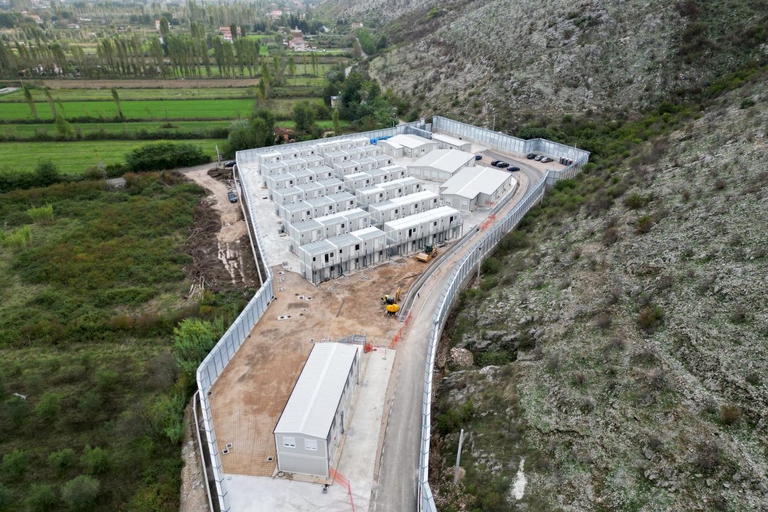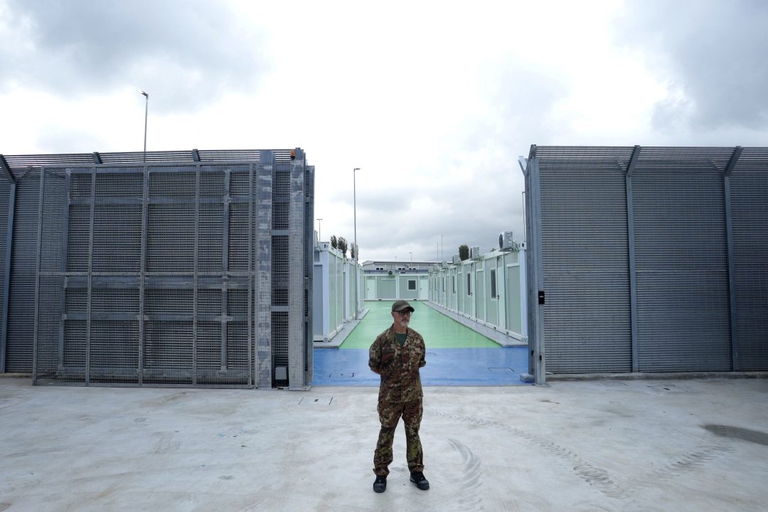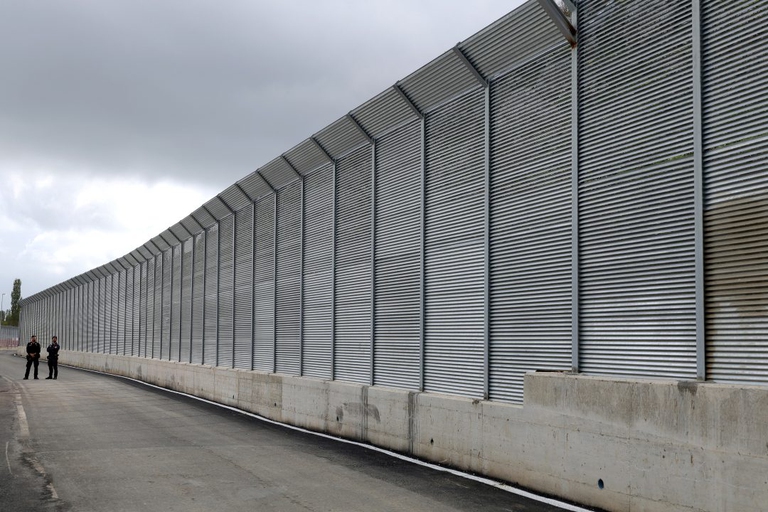https://www.lifegate.it/migranti-albania-meloni
- |
- In November 2023 the Italian government signed an agreement for the construction of migrant centers in Albania.
- Between exorbitant costs and alleged violations of Italian and international law, the centers got underway.
- The first forced transfer to Albania cost 18 thousand euros per person.
The first ones 16 people destined for migrant centers managed by Italy arrived in Albania.These are 16 men fromEgypt and from Bangladesh, intercepted in the Mediterranean Sea and boarded on the navy ship Libra.
Now they will have to face the long bureaucratic process that goes through the registration procedures inhotspot of Shëngjin and the transfer to first reception centers or in the detention center for repatriations (CPR) of Gjader, depending on whether or not it is possible to apply for asylum.
The centers for migrants across the border wanted by the Meloni government, unique in Europe, have thus become a reality.An operation that is in the spotlight for his team stratospheric costs, but also because it would be based on a series of violations of Italian and international law.

Migrant centers in Albania
Last November the Italian Prime Minister, Giorgia Meloni, and the Albanian prime minister, Edi Rama, they signed a memorandum of understanding for opening in Albania of centers for migrants managed by Italy.
Melons and Rama they agreed for the construction in Albania, in Shengjin, of a hotspot, that is, the center where the data of foreign citizens who have just landed are recorded to understand whether they have the right to apply for asylum or not.And then for the construction, in Gjader, of a first reception centre for migrants seeking asylum from 880 seats and of a detention center for repatriations (CPR) from 144 places for those who see their request rejected.In addition to this, the protocol provided for the construction, again in Gjader, of a 20-place prison.
With this protocol, the Italian government has laid the foundations for outsource border procedures.But only in territorial terms, since the management of the centers and that of repatriations will always be the responsibility of Italy and its officials.In fact the perimeter of the centers was thought of as a sort of Italian exclave in Albanian territory, that is, where Italian law applies.
The procedure provides that when a group of migrant people is rescued in Mediterranean Sea, an initial identification is made which leads to selection “non-vulnerable” males and coming from countries considered safe.These are loaded onto an Italian navy vehicle, which takes them to the new centers in Albania, while "vulnerable" women, children and men coming from countries considered unsafe will continue to be taken to Lampedusa.

The Meloni government justified the agreement with Albania with the need to reduce the pressure on border procedures in Italy, overwhelmed by too many arrivals.All the costs of construction and management of the Albanian structures fell on Italy, however a total amount of approx 670 million euros in five years, which is the duration of the (renewable) agreement.
The first forced transfers
The project was supposed to start in May, but a series of construction delays has meant that migrant centers in Albania have only now become operational.
The October 14 the first trip to Albania has started.A group of migrants was rescued in the international waters of the Mediterranean Sea and after an initial interview on board they were identified 16 “non-vulnerable” males coming from Egypt and Bangladesh, countries considered safe by Italy.The Navy ship Libra, a giant da 80 meters, thus undertook the two-day crossing towards Albania, arriving in the port of Shengjin on the morning of 16 October.
Now the Libra ship will return off the coast of Lampedusa, ready to travel back to Albania with new migrants.In the beginning the transport of people to the Albanian centers had to take place with passenger ships, so as to cut costs.One of the innovations that have emerged in recent days is the use of the navy ship, which according to calculations it could cost up to 280 thousand euros per crossing.That is, in the case of the first trip with the 16 migrant people, almost 18 thousand euros per migrant, to whom must be added a cost per person migrants in the Albanian centers of 300-600 euros per day, compared to 35 in Italy.
Against international law
But beyond the costs, there is a shadow over the migrant centers in Albania national and international law.There Court of Justice of the European Union has already objected the mechanism with Italy wants to consider "safe countries" even countries that in reality in some regions, and for some aspects such as the discrimination of the LGBTQI+ community, are not.In this case Egypt and Bangladesh, the nationalities of migrant persons brought to Albania on the first trip should be considered “unsafe countries”, as well as almost all of the countries from which Italy receives asylum requests.Therefore the Albanian centers would already stop functioning, as they do not have people with the requirements to move there.

Other jurists have highlighted that repatriations from Albania to their countries of origin, which Italy should deal with in ways that have not yet been clarified, could result in collective rejections, prohibited by international law.Still on an international level, last December also the Albanian Constitutional Court he had failed the protocol.And how he reported the Association for Legal Studies on Immigration (Asgi), the transfer of people to a non-European country to carry out border procedures is contrary to some principles of Italian Constitution.
